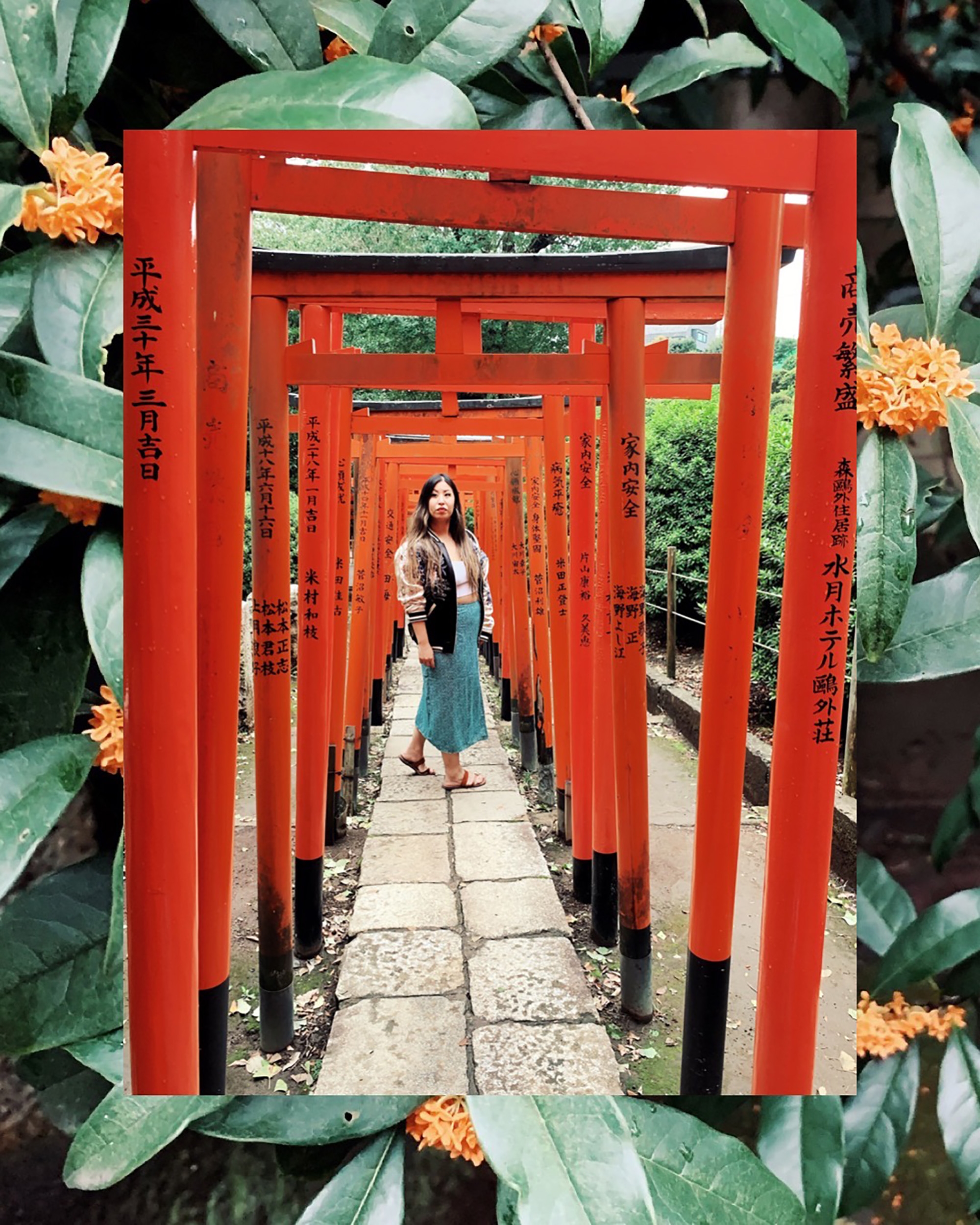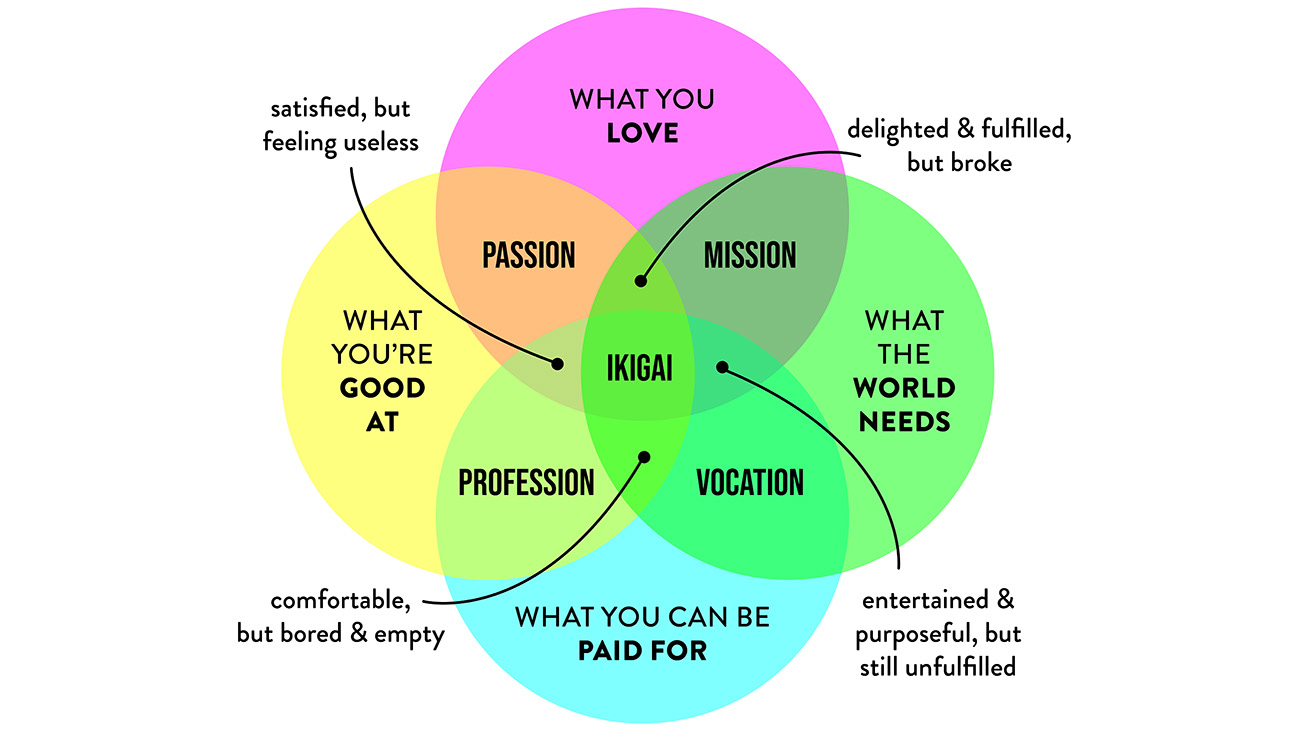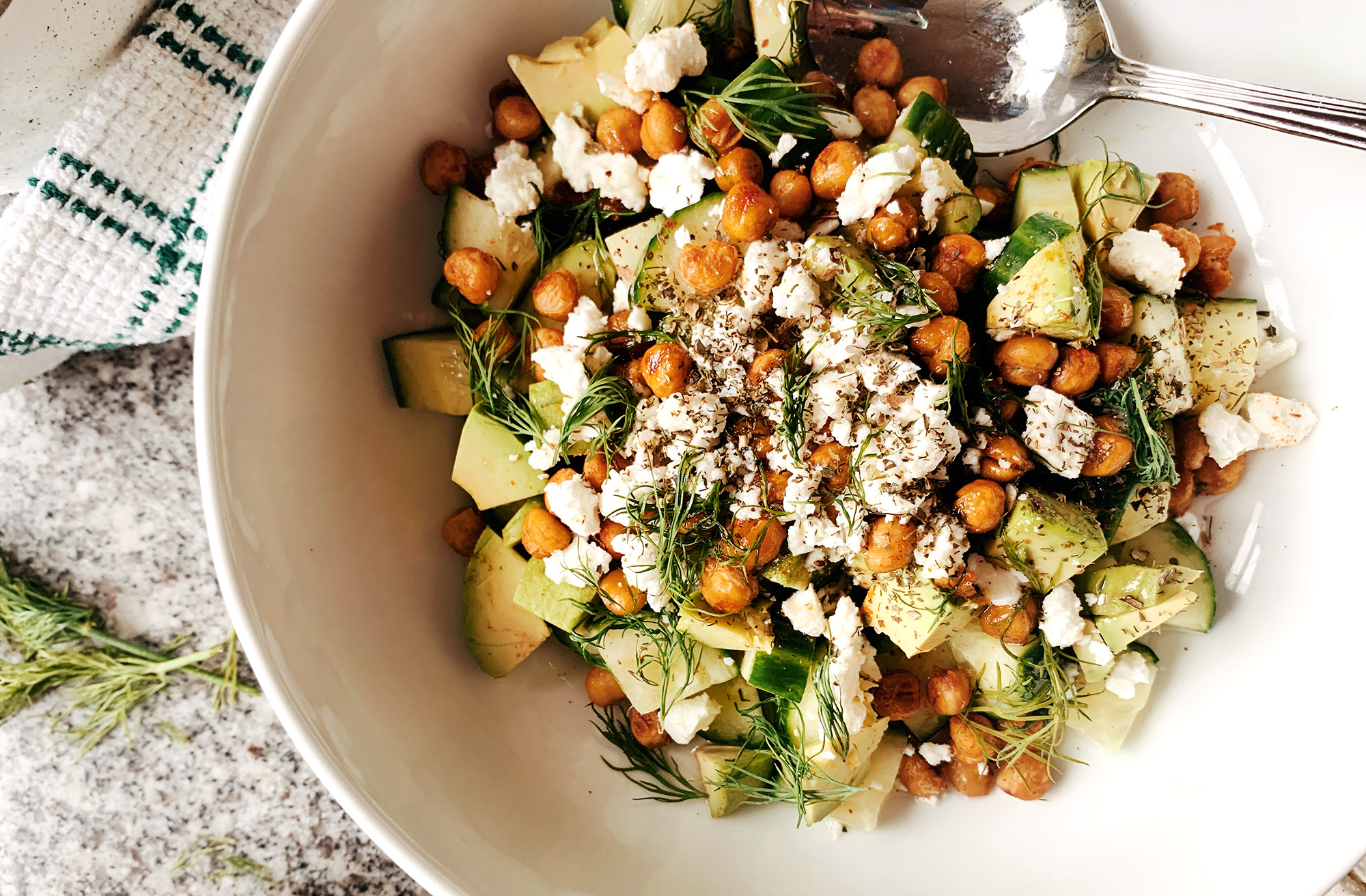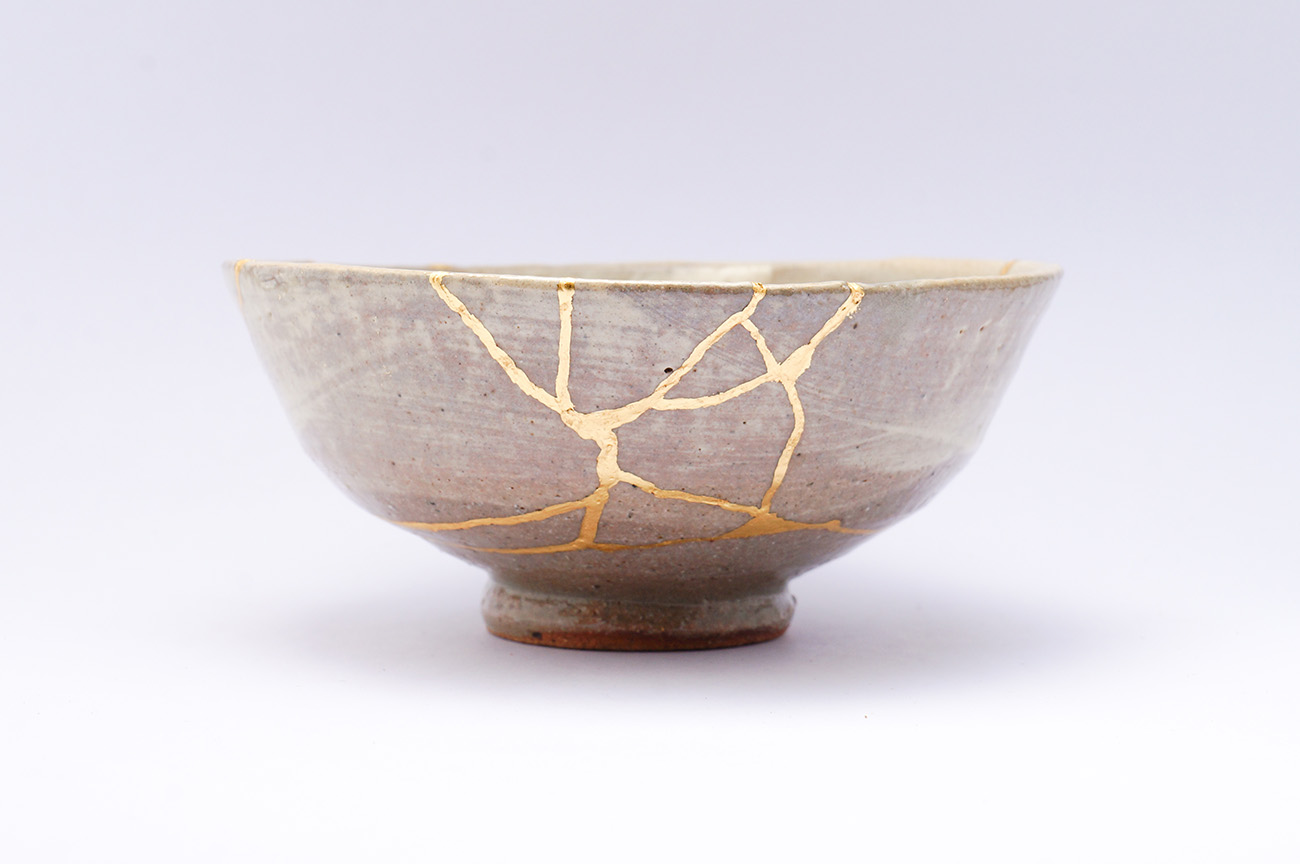
The Japanese seem to have it all figured out with inspirational concepts for living that will aid you in every aspect of your day, from decluttering Marie Kondo-style to cultivating gratitude.
They have a way of making everything sound deeply profound. Even asking for directions to the bathroom ends up resembling beautiful poetry, or at the very least like it’d end up on a bumper sticker or needlepointed somewhere.
Did you know that the Japanese have hundreds of words that have no English counterpart? The language reflects their zen-like culture that appreciates nature and finds beauty in simplicity. This explains why they have words like hanafubuki to express when a cloud of cherry blossom petals fall at once, like snowflakes in a blizzard. Like, I can’t even explain the meaning of their word in a way that does it justice. Stupid English.
Their words are so infused with meaning that they serve as wisdom that can revolutionize our daily lives.
RELATED READING:
➳ 7 Ways To Keep Calm and Self-Quarantine On
➳ 125 Thoughts I Had In Quarantine That Everyone Can Relate To
➳ A Guide To Spending 3 Days In Traditional Kyoto
With lockdown in full effect, we could all use that extra boost of inspiration right now. To help you through these especially tough times, here are 7 Japanese concepts for living to apply in your day-to-day that will help you to thrive:
‘Ikigai’: Reason for Being
Despite sounding like something you’d utter upon stepping in something gross, ikigai is probably the most well-known of Japanese concepts for living. It refers to finding joy through purpose and is your reason for getting up in the morning (besides breakfast) and boy do we need a reason now more than ever.

How do you find your ikigai ? Start by looking at the intersection of what you love, what you’re good at, what the world needs and what you can be paid for.
While it’s easy to slide into the feeling of helplessness during lockdown, making an effort to live deliberately will replace despair with a sense of control and fulfillment.
‘Mukayu’: Non-Existence
The other day, I got a call from a furniture company asking me if I’d be home at 2pm to receive my order. My response was “Lady, home is the only place I am these days.” With lockdown in effect, my social calendar is completely empty which would be embarrassing if, you know, there wasn’t a pandemic going on.
But according to mukayu (meaning “non-existence” or “the natural state as it is”), empty things can be the most meaningful. While it may parade as being unbearably boring, it’s actually an opportunity for self-reflection. Free of the distractions of the outside world, we can just be.
This Japanese philosophy also encourages us to see the value is what is seemingly useless. Instead of viewing lockdown as lost or wasted time, focus on how you can use it to your advantage — try some new recipes, develop morning rituals, make a dent in your reading list, learn a new skill, etc…Make every moment count.
‘Eiyōshoku’: Nourish Your Body
With 24/7 confinement and the gloomy weather, it’s hard enough to get out of bed in the morning let alone take care of our health. How can I exercise self-control and avoid gaining weight when my fridge so near? Why stay in shape when people can only see me from the waist-up in Zoom calls? Oh, I’ve had all of these thoughts during quarantine and then some.

But as the mind and body are inextricably linked, it’s imperative to ensure that we’re caring for both equally if we want to keep our spirits up. Eiyōshoku is the Japanese concept for living a healthy lifestyle by nourishing the body.
This doesn’t just mean eating nutritious meals but also moving your body (even if it’s just taking a walk around the block or morning stretches), meditating and getting adequate sleep. While bad days are inevitable, it’s important to focus on what we can do to feel good.
‘Wabi-Sabi’: Admire Imperfection
Good or bad, all things are subject to change. Even though 2020 has felt like it’s lasted a decade, take comfort in knowing that this too shall pass. What better time than now to celebrate one of the Japanese concepts for living and aesthetics that embraces transience? Wabi-sabi is finding beauty in what is impermanent.
Another tenet of wabi-sabi is rather than striving for perfection, to accept and embrace imperfection. Life is far from perfect right now — it is full of peaks, valleys and ugly-ass bumps in the road. But it also gives us a chance to take pause to appreciate the small blessings in our daily lives that are often overlooked.
You know what else isn’t perfect? Us. To be human is to be flawed so to embrace wabi-sabi is to embrace our humanness. It’s what allows us to better understand and connect to one another through this shared experience.
‘Kansha’: Cultivate Sincere Gratitude
In Japanese, kansha means thanks, appreciation or gratitude and has been the number one thing that has helped me keep calm during quarantine. Instead of focusing on all the things that I miss (going to salsa, hugging loved ones, wearing lipstick, travelling, the list goes on…) I switch gears and think about what I have to be thankful for.

As the ever-wise Elizabeth Gilbert said
“You need to learn how to select your thoughts just the same way you select your clothes every day.”
Choose gratitude. We can’t control what’s happening in the world but we can cultivate the power of our minds to keep us going.
‘Shikata Ga Nai’: Accept What Cannot Be Helped
March hit and the world went into lockdown. It has lasted WAY longer than anyone could’ve predicted and feels like someone pressed the big ol’ pause button on life. In short, it SUCKS. What are you going to do about it?
Bitch? Moan. Sulk? All of the above? Understandable, but what is that really going to change?
We can only change what is within our control (i.e. wear a damn mask, stay home and support local businesses). Otherwise, for our own mental well-being we should observe shikata na gai, the Japanese concept and term that means “it cannot be helped” or “nothing can be done about it.” It’s better to accept what is than to waste your energy on resisting what will be whether you accept it or not. Channel your frustration into avenues that will have impact on your life instead.
‘Kintsugi’: The Art of Golden Repair
The Japanese have an art form called kintsugi where shards of broken pottery are glued back together with gold lacquer. The practice of ‘golden repair’ stems from wabi-sabi and is built upon the idea that flaws and imperfections result in stronger and more admirable pieces of art.

The pottery is a perfect metaphor for my grand plans for 2020 — smashed to smithereens. Little did I know what would arise from the shambles would be beautiful in its own, unexpected way.
Without outside opinions filling my head like white noise, I have cultivated a deeper understanding of myself. The time alone has brought my values and goals into sharp relief. I’ve done things I never thought I was capable of before COVID. In lieu of physical proximity, I’ve become emotionally closer to my loved ones.
Initially I thought that the pandemic dismantled my life. What it really did was allow me to kintsugi my life; putting it back together using only the pieces that truly mattered and industrial-strength Super Glue.
Not going to sugarcoat it — going back into lockdown has been brutal. It’s been hard to keep my rose-coloured glasses perched upon my nose but I’m trying to find the feeling of progress where I can. Whether it’s in my personal pursuits or challenging myself to view life through the lens of these Japanese concepts for living with grace and acceptance, it’s better to focus on what’s in our control.
Looking for a way you can make a positive impact? Here are ways you can support local restaurants and bars in Toronto right now.
Keep your stalking game strong and follow me @teriaki if you aren’t already!





0 Comments